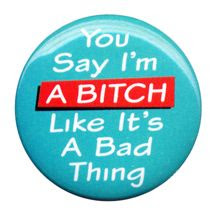http://www.storychick.com/dangers-binge-drinking/
The Dangers of Binge Drinking
Binge drinking is the consumption of a lot of alcohol on a single occasion/drinking session. I have read some definitions that it is also considered continuous drinking over a number of days or weeks. However you define it, that level of drinking is considered binge drinking and is a risk for the long and short-term effects below. For some people, they like to indulge on nights out at a party or a get-together. For others, drinking is an easy way to forget their problems and gives them freedom to be who they want to be. They want to let their hair down, enjoy a night out, and let go of their inhibitions and over indulge because it feels good. Their mood and self-confidence are lifted. People feel the pressure to be perfect, or some feel peer pressure and do not know their limits with alcohol, which can result in drinking too much over a short period. It can occur in many places such as a celebration of an occasion and the need to become “socially” acceptable in the eyes of others. For some, it is/was a phase, fun with friends and then the party is over. Binge drinking is not pretty and literally accelerates the aging process… yikes.
Let’s face it, alcohol is a staple of life, and most people I know like and enjoy drinking. Whether you have had shots, mixed drinks, beer or wine, and have drunk large amounts of those, then you have experienced some of the short-term effects which are: impaired speech, unstable balance, impaired senses, hangovers, headaches, dizziness that can cause nausea and vomiting along with inhibited judgment that can lead to risk of injury to yourself or others.
Some of the long-term effects of binge drinking on a regular basis can lead to major damage to the liver and cause depression and anxiety. Long-term effects can also result in problems at work or school and with personal relationships. It causes brain damage faster than chronic drinking (alcoholism) would and can increase risk for heart disease. When someone you know binge drinks on a regular basis, whether it is with a group or alone, this can be a sign that they are alcohol dependent.
Short or long-term, the next day, or over the next few days, you can feel bad and embarrassed by your actions. A pattern of drinking that causes these issues is abuse and can turn into alcohol dependence or alcoholism.
The good news is that millennials are drinking in moderation, and some would rather work out than go drinking… they are more concerned about their health. A generation of foodies who are discovering great new venues and enjoying nights out with good friends cherishing the experience of dining. In other words, they are enjoying good food and less booze. More of them are conscious of calories and of their wallet and are on tight budgets, so they are not keen on paying for overpriced drinks. Also, more women are choosing not to binge drink and respect their friends’ choices not to drink without pressuring or teasing them into drinking. They feel more accountable for their actions and have changed their preferences for a fun night out.
A lot of us like to celebrate whether it is for a special occasion or just to be out with friends, know your limits, stick to moderation, and drink responsibly… cheers to that!
Let’s face it, alcohol is a staple of life, and most people I know like and enjoy drinking. Whether you have had shots, mixed drinks, beer or wine, and have drunk large amounts of those, then you have experienced some of the short-term effects which are: impaired speech, unstable balance, impaired senses, hangovers, headaches, dizziness that can cause nausea and vomiting along with inhibited judgment that can lead to risk of injury to yourself or others.
Some of the long-term effects of binge drinking on a regular basis can lead to major damage to the liver and cause depression and anxiety. Long-term effects can also result in problems at work or school and with personal relationships. It causes brain damage faster than chronic drinking (alcoholism) would and can increase risk for heart disease. When someone you know binge drinks on a regular basis, whether it is with a group or alone, this can be a sign that they are alcohol dependent.
Short or long-term, the next day, or over the next few days, you can feel bad and embarrassed by your actions. A pattern of drinking that causes these issues is abuse and can turn into alcohol dependence or alcoholism.
The good news is that millennials are drinking in moderation, and some would rather work out than go drinking… they are more concerned about their health. A generation of foodies who are discovering great new venues and enjoying nights out with good friends cherishing the experience of dining. In other words, they are enjoying good food and less booze. More of them are conscious of calories and of their wallet and are on tight budgets, so they are not keen on paying for overpriced drinks. Also, more women are choosing not to binge drink and respect their friends’ choices not to drink without pressuring or teasing them into drinking. They feel more accountable for their actions and have changed their preferences for a fun night out.
A lot of us like to celebrate whether it is for a special occasion or just to be out with friends, know your limits, stick to moderation, and drink responsibly… cheers to that!


